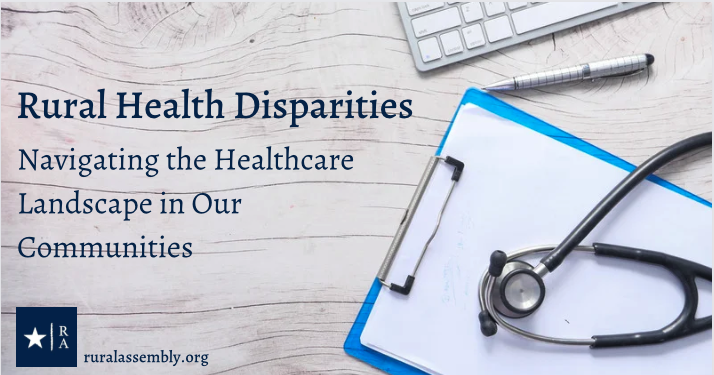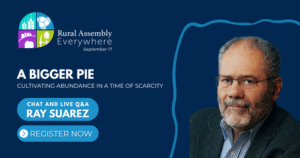
A new series from the Rural Assembly to explore health disparities in rural communities
By Quintissa Peake, Policy Fellow
Access to quality healthcare is a fundamental right that every citizen deserves. However, the reality is that many individuals living in rural areas often face significant challenges in obtaining the healthcare they need. This is a persistent issue, and its impact on individuals living in remote areas with chronic health conditions is profound. This disparity in access not only jeopardizes the well-being of rural citizens but also impacts their overall health outcomes. And if you have a chronic health condition, or special healthcare needs, these challenges may be even greater.
Let me paint the picture for you. More than 46 million Americans, or 15 percent of the U.S. population, live in rural areas as defined by the U.S. Census Bureau. Rural areas are characterized by vast landscapes, sparse populations, and limited resources. Many rural citizens find themselves miles away from the nearest medical center —and the scarcity of healthcare providers in rural regions further compounds the problem. These factors create unique challenges in establishing and maintaining access to timely and essential healthcare services.
The challenges that rural residents face in accessing healthcare services contribute to health disparities. The barriers to care that rural residents experience include workforce shortages, health insurance status, transportation issues, health literacy, and stigma in rural communities.
The Rural Assembly is kicking off a series of blog posts which will explore the challenges faced by rural citizens with chronic health conditions, the consequences of limited healthcare access, and the urgent need for comprehensive solutions to bridge this healthcare gap. By addressing the unique challenges faced by these individuals, we can work towards building a healthcare system that is inclusive, efficient, and responsive to the diverse needs of all citizens. Bridging the healthcare gap is not just a matter of policy: it is a commitment to the well-being and dignity of every individual, regardless of where they call home.

Quintissa Peake, Policy Fellow, Rural Assembly
Quintissa Peake is a 2023-2024 Fellow at the Rural Assembly. She serves on the Board of Directors of Appalshop and the UK Alumni Association Board of Directors. She enjoys traveling and staying active in her roles as a proud, fun-loving aunt and godmother.







